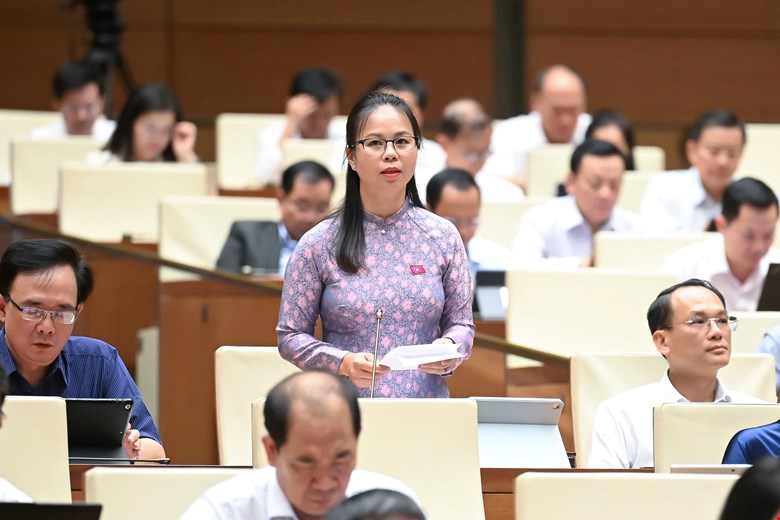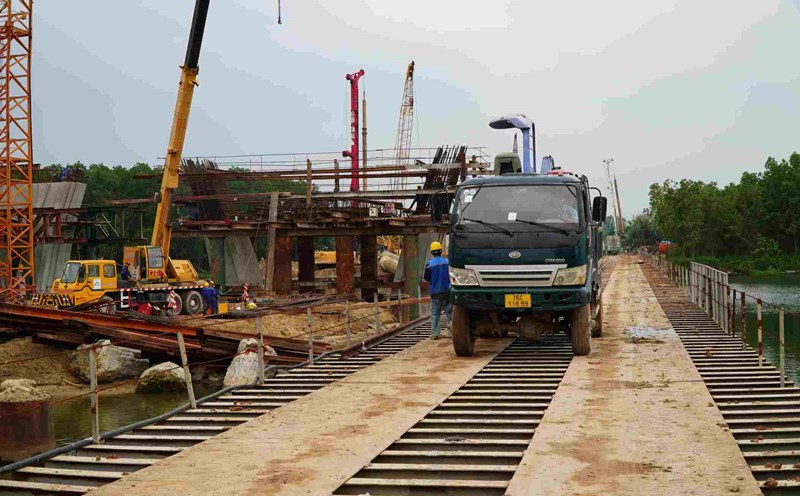On the morning of June 18, the National Assembly continued to discuss in the hall about the socio-economic situation; the practice of thrift and combating waste in 2024.
The summary report of the Ministry of Home Affairs said that after the arrangement of administrative units, there will be about 4,226 surplus headquarters.
Participating in the speech, delegate Nguyen Van Canh (Binh Dinh delegation) expressed his agreement with the priority of using surplus headquarters for public purposes such as healthcare, education, libraries, parks, cultural institutions, and sports.
Proposing more, the delegate said that some of these surplus headquarters should be used as public parking lots.
Explaining this proposal, the delegate said that the demand for parking in urban areas is currently very high, while the land fund for static traffic is still lacking compared to regulations.
"Building many small, scattered parking lots will not be as effective as some large parking lots, because people are often afraid to park their vehicles too far from their residence or workplace," said the delegate.
According to the delegate, in major cities around the world, public parking lots are arranged within walking distance, in some places only a few hundred meters away. This is the right time to convert some surplus headquarters into smart parking lots, meeting the needs of people and businesses, while also solving the problem of illegal parking and contributing to urban beautification.
To promote the trend of using electric vehicles, according to the delegate, the rapid development of the charging station system is very necessary.
At the same time, reading culture is being encouraged, but many people lack the time to read. Therefore, he proposed combining the smart parking model with a charging station and a mini library with a refreshment area, creating a reading space while waiting for charging.
This is a model that needs to be developed in the future because it both serves multiple purposes for the people and is in line with the State's orientation. Can be implemented in new commune centers. When socializing this model, there needs to be a policy of prioritizing land lease for parking lots, charging stations and libraries, instead of reserving them for other service purposes, delegate Nguyen Van Canh proposed.

There are still no clear regulations on the use of surplus headquarters
Delegate Chu Thi Hong Thai (Lang Son Delegation) said that the inadequacy in infrastructure after the merger is very large.
On average, 3 or 4 communes are merged into a new commune, causing many old headquarters to be redundant, while new commune headquarters do not meet the requirements for a larger and more functional working space, said the delegate.
In addition, the female delegate said that housing for civil servants for cadres and armed forces is also an issue that needs attention.
Investing in construction and upgrading facilities is necessary but poses a financial burden for low-income localities, while the effective management and exploitation of surplus headquarters still does not have clear regulations, which can easily lead to waste.
From there, delegate Chu Thi Hong Thai suggested that the Ministry of Finance study a roadmap to allocate investment capital to build and upgrade offices and public housing for newly formed administrative units, prioritizing areas with difficulties and not being able to balance the budget on its own.
At the same time, issue unified guidelines on the management and use of surplus headquarters that can be converted to serve the public and community such as health stations, cultural houses, and community learning centers.











